Do you know that up to 40% of visitors leave a website if it takes more than 3 seconds to load?
Do you know that speed is now a Ranking Factor for Google?
With tons of blogs, websites, and e-commerce stores launching every minute, speed will be the key differentiator in the future.
The faster your website loads, the higher your chance of ranking. Of course, there are other factors, too.
Code optimization and caching are the best ways to improve the website loading time. WP Rocket Plugin is the market leader in this aspect.
WP Rocket is a WordPress-only plugin. Since WordPress owns about 43.6% of all websites, it makes sense for WP Rocket to concentrate on WordPress-only solutions.
WP Rocket has been on the market for more than a decade. Though dozens of similar plugins are available, none could hamper its dominance.
Why so?
This article will answer this question by discussing the Top ten Reasons Why the WP Rocket plugin is still the best cache plugin for WordPress.
Before discussing WP Rocket, we should know a little about Caching because that is where all the fun elements reside.
What Is Caching?
Caching stores website data in a computing environment that can be accessed anytime without putting extra pressure on the server.
When visitors visit a website for the first time, they get fresh content from the server. If that content has not changed by then, they will see the cached content the next time.
The time when the cached content should be updated depends on the expiry time of HTTP headers. This could be days for static sites, but it could also be minutes.
There are mainly two types of caching.
- Server Side Caching
- Client Side Caching
Server Side Caching
In server-side caching, the server stores the content of your website on a proxy. For the second time, when a visitor visits the same page, it is retrieved from the proxy server, thus reducing the load on the origin server and saving bandwidth.
Varnish for Apache servers and NGNIX reverse proxy for NGNIX servers are some of the well-known proxy servers available on the market.
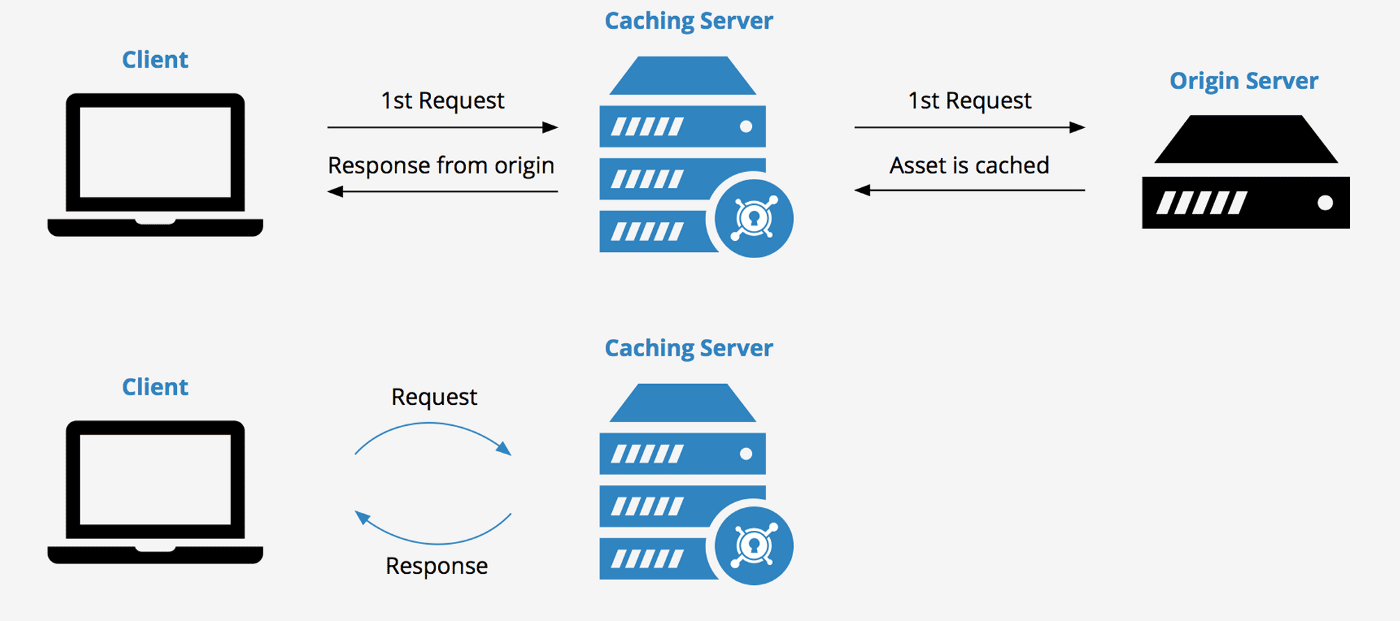
Client Side Caching
Client-side caching stores the contents in the user’s browser memory. If the expiry life span is still valid, the browser-cached data is loaded when a user visits a page for the second time.
If not, the browser checks the proxy server for the content and sends a request to the origin server if the proxy server cannot deliver fresh content.
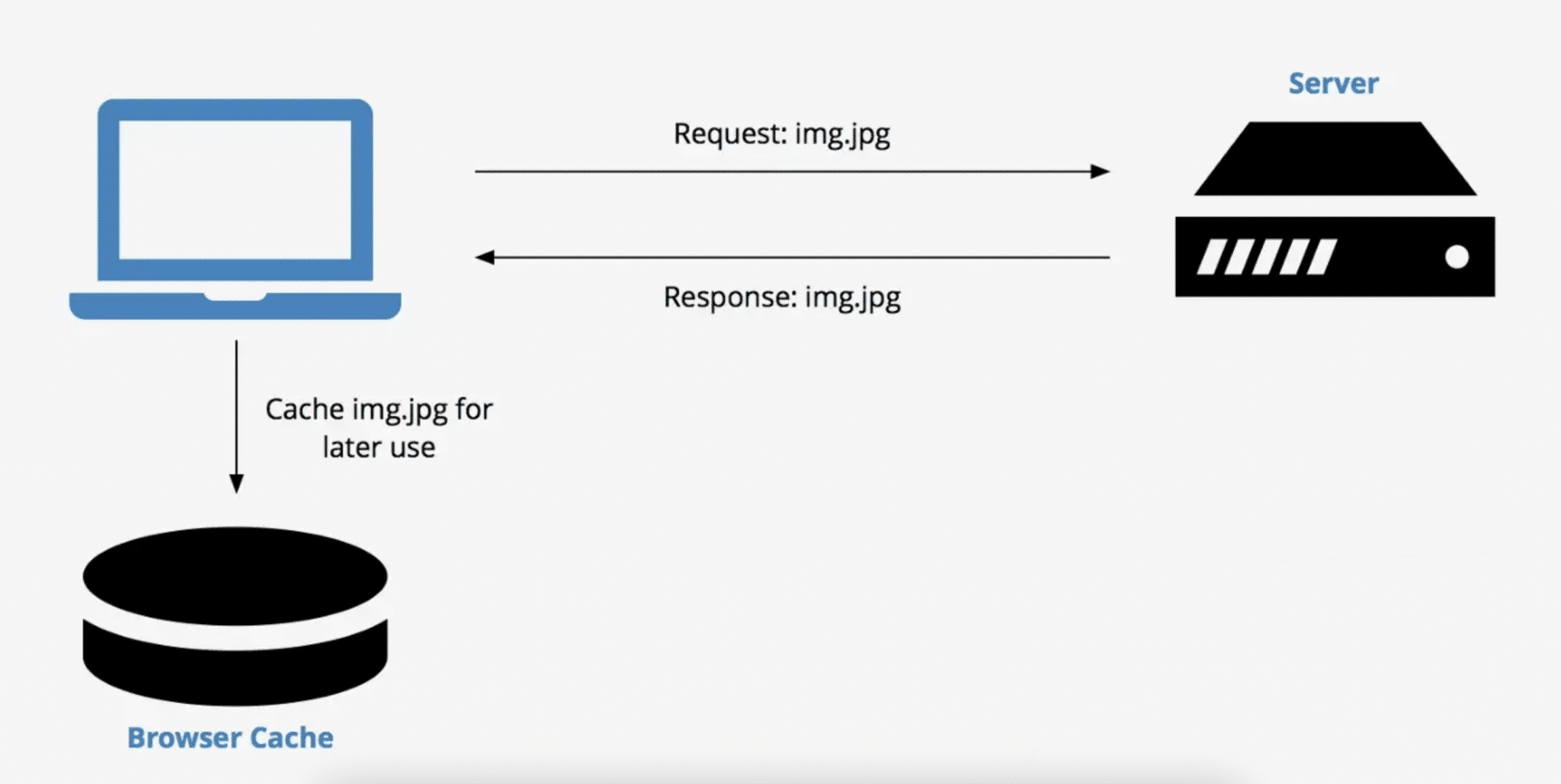
What Is Site Caching?
Until now, we have understood that almost every website has two caching layers. However, one more layer of caching, called site caching or page caching, makes a big difference.
For site caching, you need a cache plugin like WP Rocket that stores the website’s cached content in the website directory.
With site caching, your browser does not go directly to the proxy server for content. Instead, it goes to site caching first, then the site caching goes to the proxy server for the content.
Site caching adds a layer to the mechanism, improving website loading time.
What Is WP Rocket?
WP Rocket is a site caching and web optimization plugin for WordPress that dramatically improves your website loading time.
Incorporated in 2013, WP Rockets powers over 4.5 million websites as of 2024. The WP Rocket Plugin is suitable for any website built on WordPress.
WP Rocket is a premium plugin, so there is no free version. However, the Company offers a money-back guarantee if you are unhappy with the plugin.
Freemium plugins like WP Total Cache, WP Super Cache, and Lite Speed Cache dominate this caching marketplace. However, for over a decade, WP Rocket has been one of the best cache plugins for WordPress.
10 Reasons Why WP Rocket Plugin Is Still The Best Cache Plugin For WordPress
Here are the top 10 reasons WP Rocket is still the best WordPress plugin, even though the market is overcrowded with free cache plugins.
1. Impressive Page Caching
This feature is WP Rocket’s main USP. While it is one of the key features of any caching plugin, WP Rocket is different because you can control every element of what to cache.
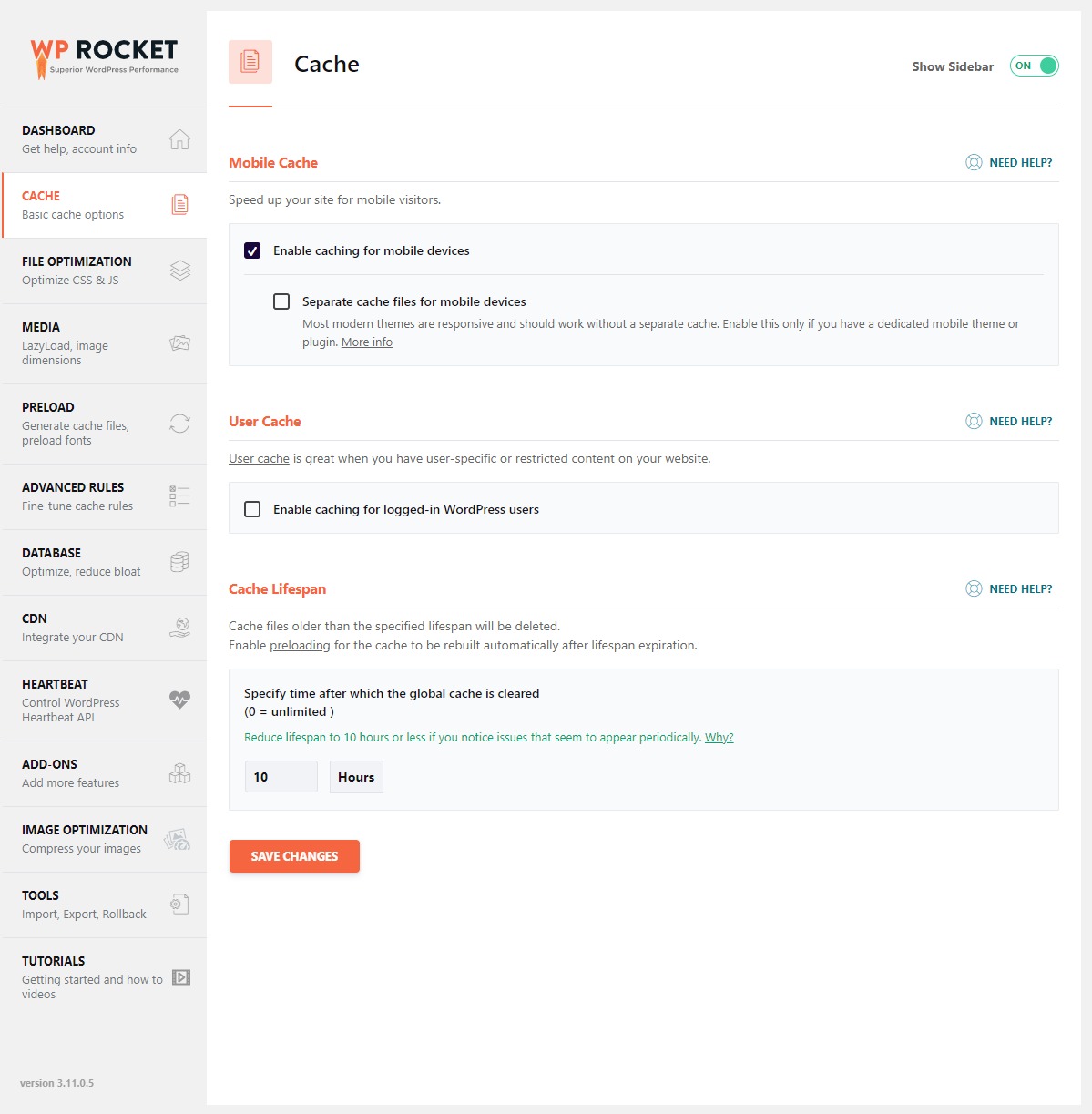
You can set separate cache files for mobile users. You can also set whether the content should be cached for logged-in users.
You can control if any URL should be excluded from caching. You can also exclude cookies and query stings from caching.
The other key element of its caching feature is cache preloading, which can preload from links, DNS requests, fonts, etc. Cache preloading improves the website speed to the next level.
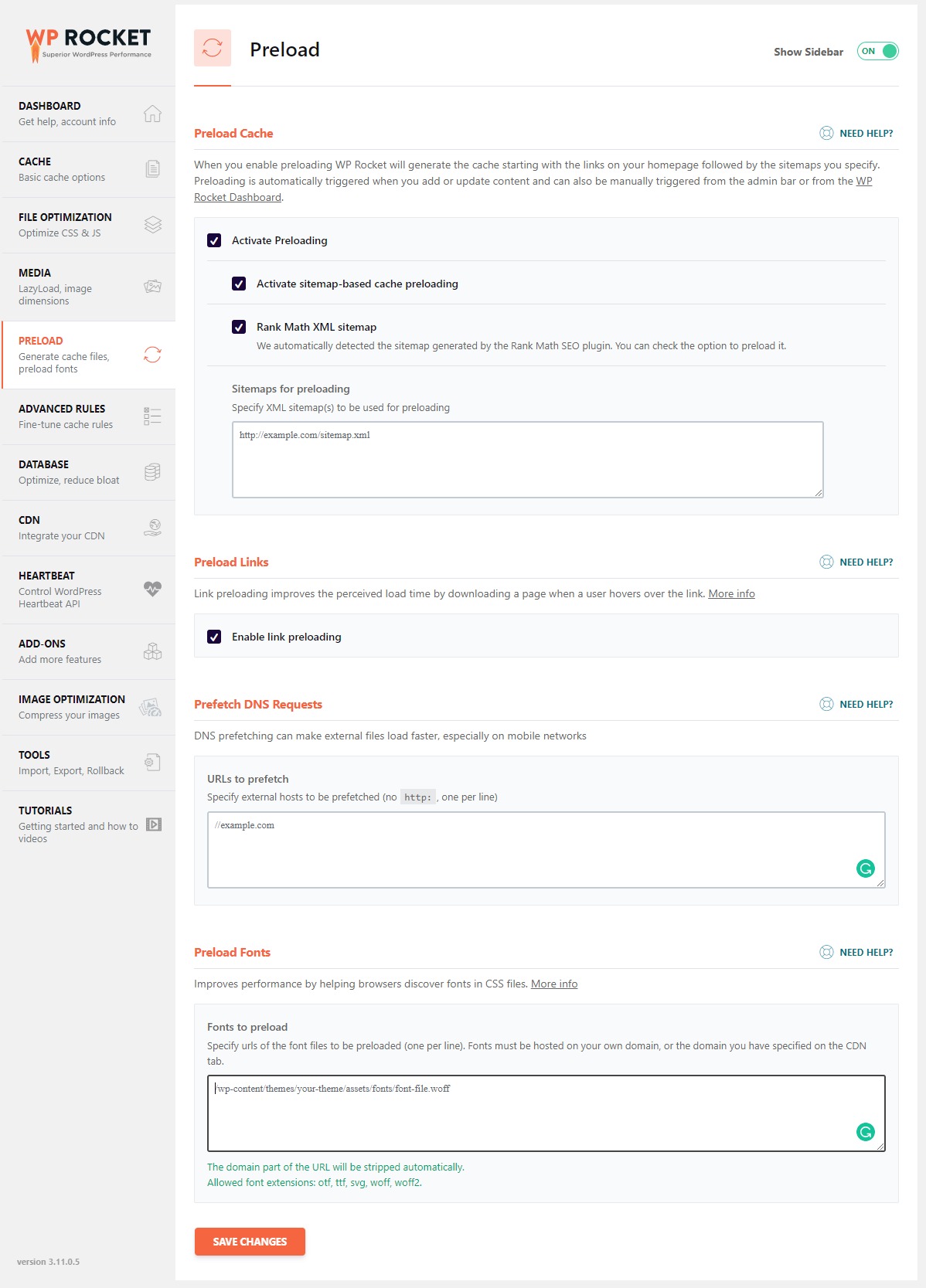
2. File Optimization
File optimization involves minifying the code to reduce the file size. A reduced file size loads faster, saving bandwidth.
WP Rocket can minify CSS and Javascript files and combine multiple CSS or Javascript files into one file, reducing the number of HTTP connections. However, combining files is not recommended if you use the HTTP/2 protocol.
WP Rocket’s other key features are the optimized delivery of CSS and delayed Javascript execution. Both can dramatically improve a site’s speed.
One word of caution: aggressive file optimization can break your site. It is suggested that you apply file optimization to a cloned site before implementing it on a live site.
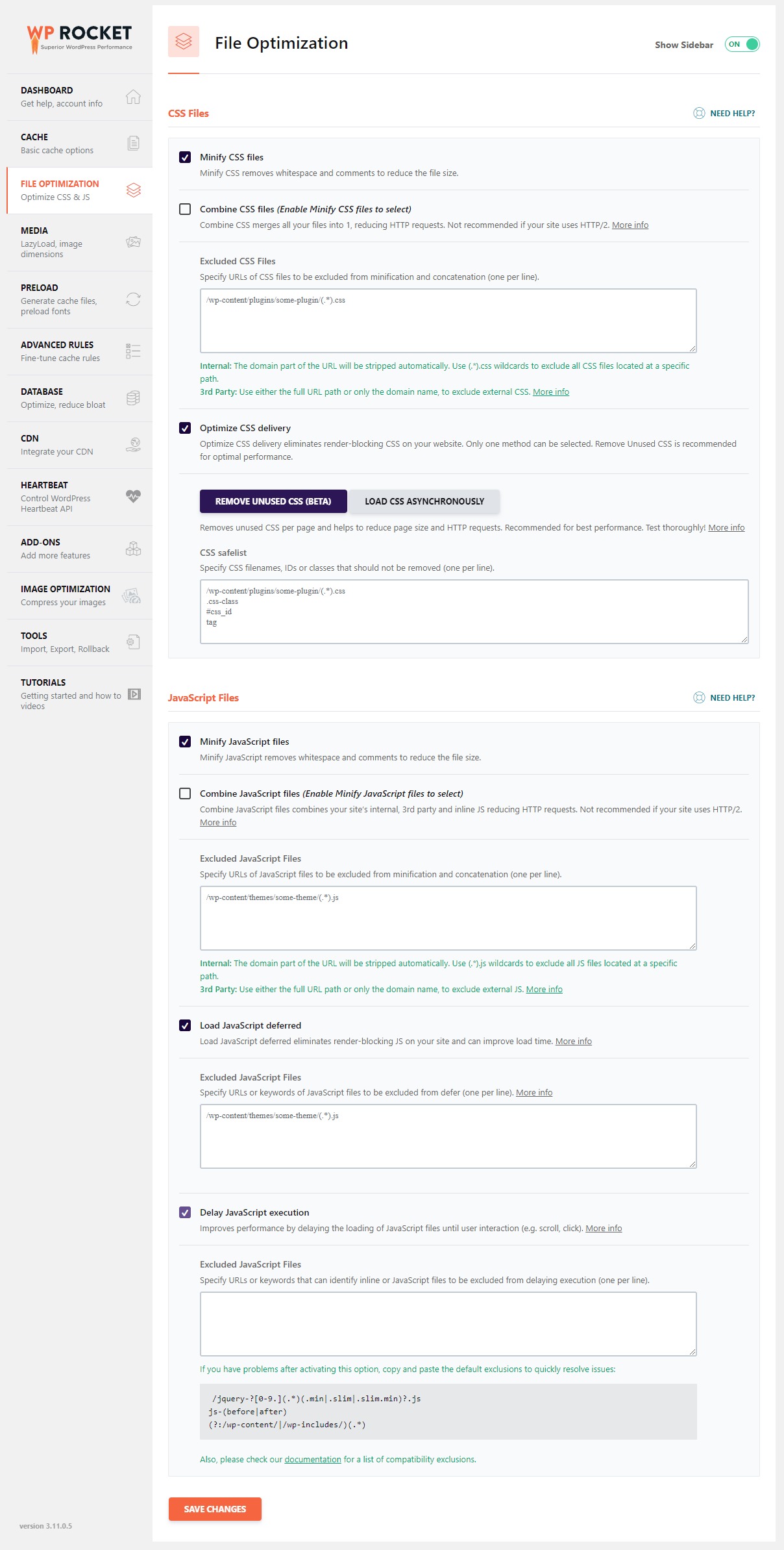
3. Media Optimization
No, WP Rocket can not reduce the media file size or change it into different formats like WEB/P or AVIF. You need a separate plugin, Imagify, developed by the same team.
However, it can apply a lazy load function to images, loading only those in the viewpoint. This reduces the amount of data needed to load the page and drastically improves the website’s speed.
There could be an argument that the lazy load feature is already present in modern browsers. If so, why do we need it in WP Rocket?
The lazy load feature in WP Rocket is very accurate and aggressive. Modern browsers can never match that level of WP Rocket. However, I would never recommend WP Rocket just for the lazy load feature.
WP Rocket can also add missing dimensions to images and replace YouTube iframe with a preview image.
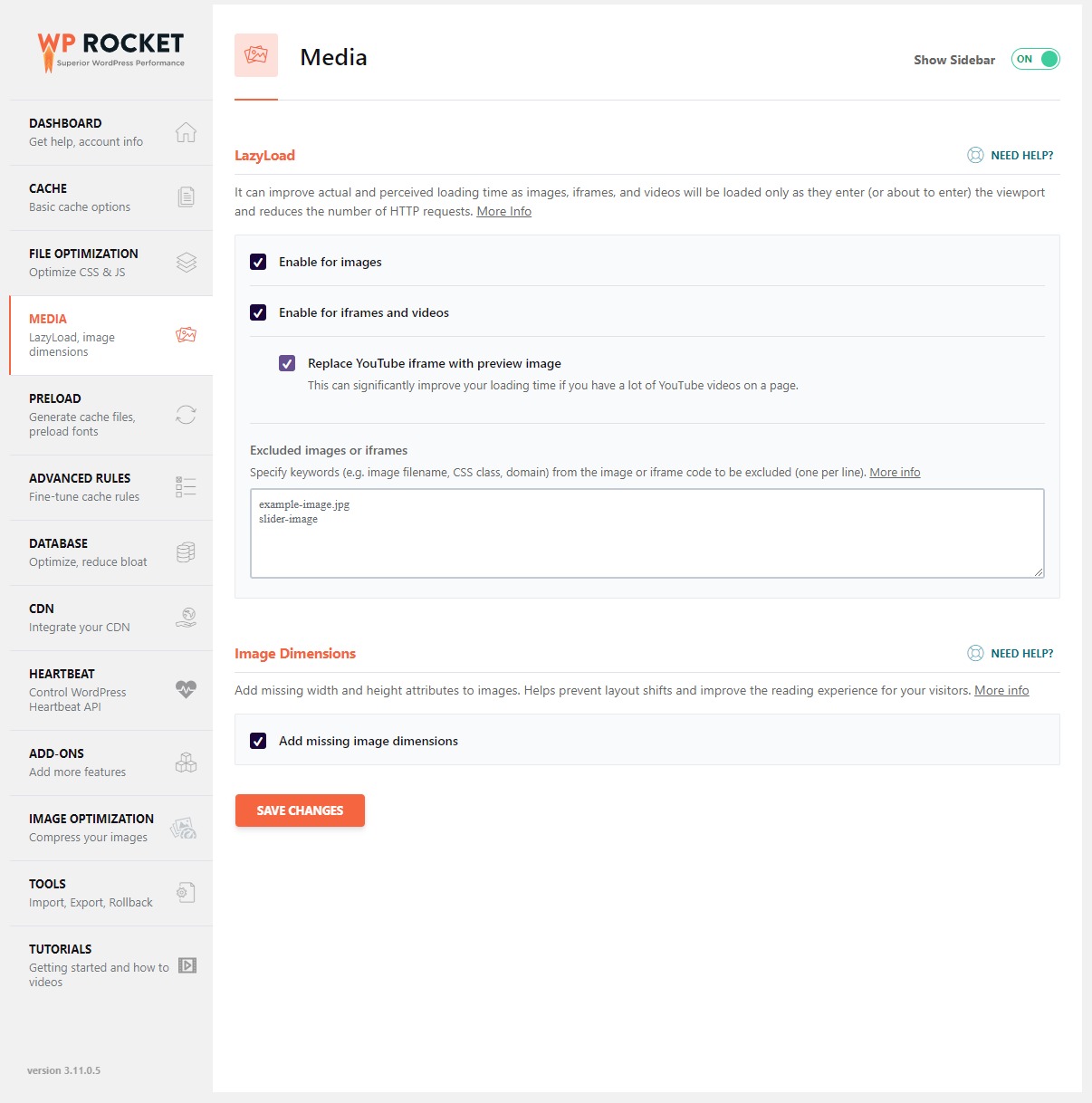
4. Database Optimization
WP Rocket is good for basic database optimization. It can delete draft and trash posts, delete expired transients, and optimize the database tables.
You can also set automatic database clean-up cron so that your database is always clutter-free and junk-free.
Although not drastic, you will notice a significant speed improvement in your website’s loading time. For the best result, it is recommended that you use an object-caching mechanism like Redis or Memcached to cache the database queries at the fastest speed.
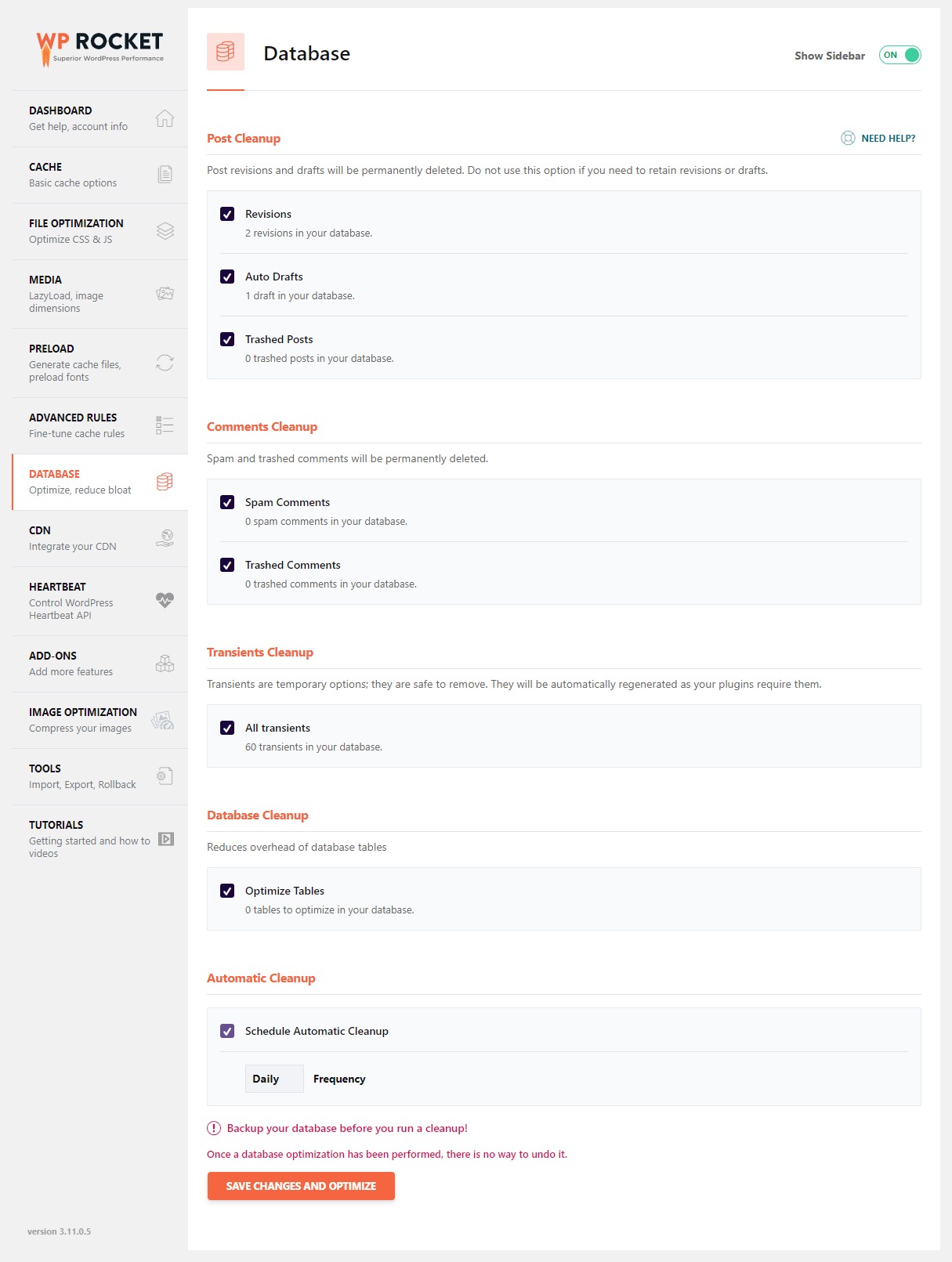
5. GZip Compression
GZip compression can reduce file sizes by up to 95%, and according to a report, 48.8% of websites use it.
Gzip compression is a technology that uses an advanced algorithm to compress the website files before they are delivered to the end client. Since it reduces the file size, the website loads faster than without Gzip Compression
It is a CPU-intensive task, meaning the CPU load will be higher when you use Gzip compression.
Enabling Gzip compression is a straightforward task involving enabling the mod_deflate module for the Apache server.
However, if you use NGNIX or Lite Speed server, you will need the following code added to your .htaccess file to enable GZip Compression.
# Gzip compression
<IfModule mod_deflate.c>
# Active compression
SetOutputFilter DEFLATE
# Force deflate for mangled headers
<IfModule mod_setenvif.c>
<IfModule mod_headers.c>
SetEnvIfNoCase ^(Accept-EncodXng|X-cept-Encoding|X{15}|~{15}|-{15})$ ^((gzip|deflate)\s*,?\s*)+|[X~-]{4,13}$ HAVE_Accept-Encoding
RequestHeader append Accept-Encoding "gzip,deflate" env=HAVE_Accept-Encoding
# Don’t compress images and other uncompressible content
SetEnvIfNoCase Request_URI \
\.(?:gif|jpe?g|png|rar|zip|exe|flv|mov|wma|mp3|avi|swf|mp?g|mp4|webm|webp|pdf)$ no-gzip dont-vary
</IfModule>
</IfModule>
# Compress all output labeled with one of the following MIME-types
<IfModule mod_filter.c>
AddOutputFilterByType DEFLATE application/atom+xml \
application/javascript \
application/json \
application/rss+xml \
application/vnd.ms-fontobject \
application/x-font-ttf \
application/xhtml+xml \
application/xml \
font/opentype \
image/svg+xml \
image/x-icon \
text/css \
text/html \
text/plain \
text/x-component \
text/xml
</IfModule>
<IfModule mod_headers.c>
Header append Vary: Accept-Encoding
</IfModule>
</IfModule>
<IfModule mod_mime.c>
AddType text/html .html_gzip
AddEncoding gzip .html_gzip
</IfModule>
<IfModule mod_setenvif.c>
SetEnvIfNoCase Request_URI \.html_gzip$ no-gzip
</IfModule>6. WP Heartbeat Control
WP Heartbeat API is a communication protocol between a web server and an end client using AJAX calls.
Features like “Auto Save Posts,” “Post Revisions,” and similar features use the WP Heartbeat API. If more plugins use the Heartbeat API, the server will make more AJAX calls, and your website will become slow.
WP Rocket allows you to control how you use or disable the Heartbeat API. You can also control the frequency of AJAX calls or altogether disable them.
You can control the Heartbeat API for the front end and back end, as well as the post editor.
You can also turn off the Heartbeat API by adding the below piece of code in your function.php file.
add_action( 'init', 'stop_heartbeat', 1 );
function stop_heartbeat() {
wp_deregister_script('heartbeat');
}7. CDN Support
WP Rocket only supports Pull CDN, including Cloudflare. A Pull CDN fetches the content of your website without any additional plugins.
WP Rocket has its own Pull CDN, Rocket CDN. However, if you plan to use other pull CDNs, please add the CNAME record to the WP Rocket setting page and be ready to go.
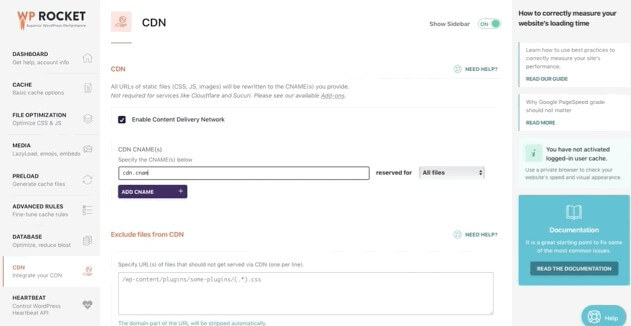
If you are using CloudFlare, WP Rocket requires a separate add-on to be enabled. You will need the Cloudflare global API key for your account to integrate.
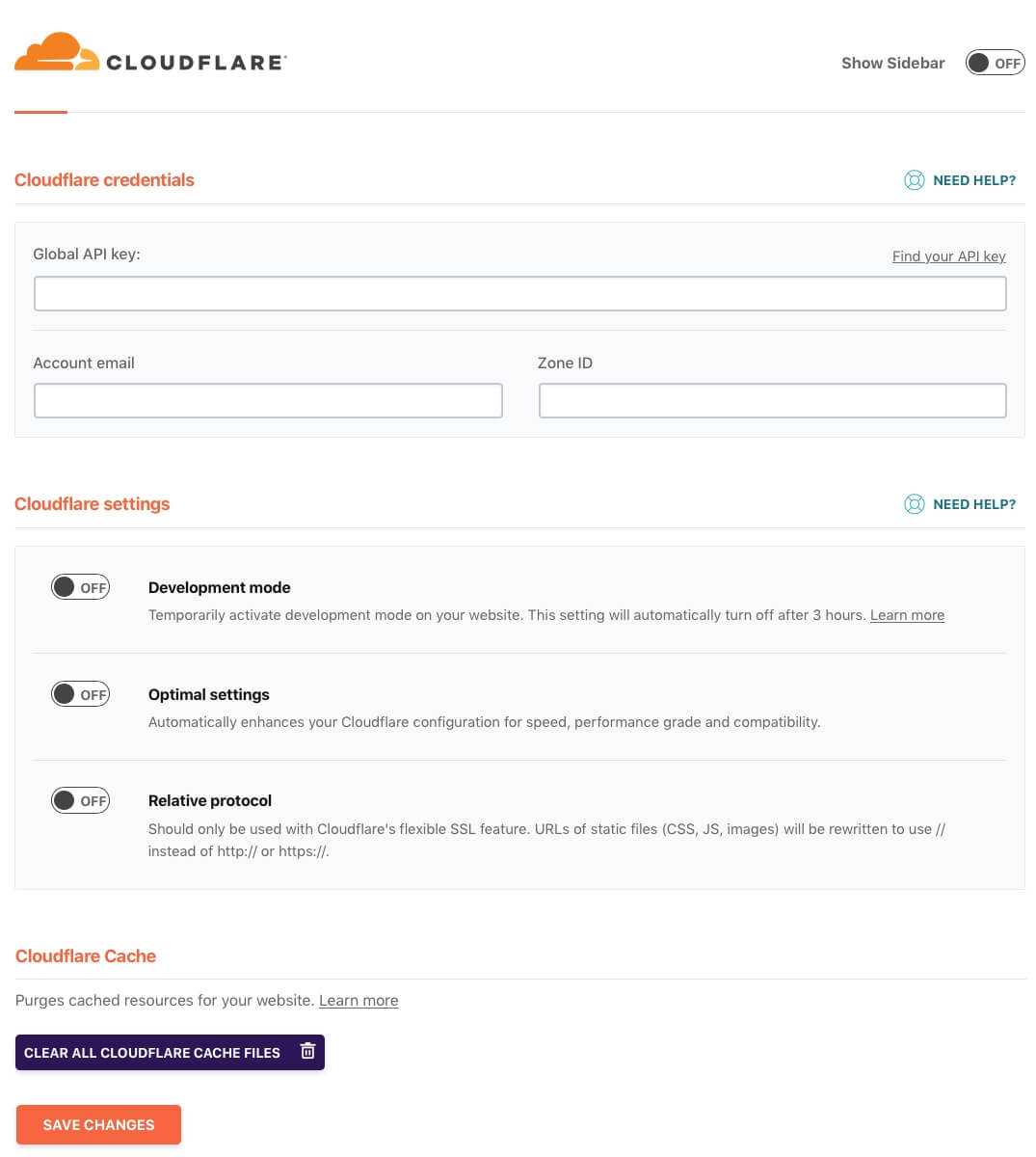
8. WooCommerce Support
Although there is no dedicated WooCommerce module, WP Rocket respects the WooCommerce setting by excluding the Cart, Account, and Checkout pages from caching and optimization.
It can also optimize the “get_refreshed_fragments” element, drastically improving the website’s loading time.
If you use the WooCoommerce Geolocate feature, WP Rocket automatically adds a query string to the URL so that those URLs do not get cached.
WooCoomerce stores use dynamic content and do not benefit much from page or server caching. However, WP Rocket’s file optimization will add speed to your store.
9. Regular Updates
The WP Rocket team first updates the plugin whenever a new feature is justified, or a new issue is reported.
Since it is already a feature-loaded plugin with almost no critical bugs, you may not see frequent updates like free plugins. Still, WP Rocket releases regular updates occasionally to add new features.
The best thing about WP Rocket is that all those updates are always free if you have an active subscription.
10. Competetive Pricing
One of the main reasons WP Rocket is so popular is its competitive pricing. Can you believe you can get WP Rocket for just $59 a year for one website?
You can purchase an unlimited website license for just $299 if you run an agency. No other plugins can beat this pricing unless you choose free cache plugins.

Conclusion
In this online race, if you want to gain an extra edge, your website must be faster than your competitors, and you should use every possible tool to achieve this.
Trust me, WP Rocket is a tool that can do wonders for you if you use it properly. It improves your website speed, and you will also notice an upward graph in your ROI.
With just $59 a year, few tools can match WP Rocket’s price and feature set.
